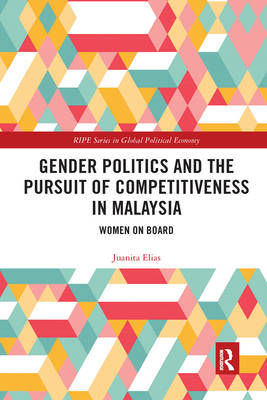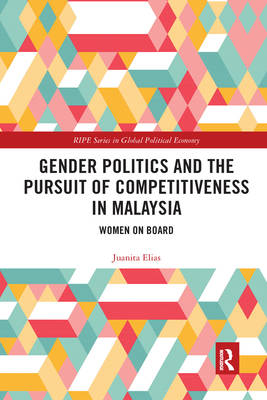
- Afhalen na 1 uur in een winkel met voorraad
- Gratis thuislevering in België vanaf € 30
- Ruim aanbod met 7 miljoen producten
- Afhalen na 1 uur in een winkel met voorraad
- Gratis thuislevering in België vanaf € 30
- Ruim aanbod met 7 miljoen producten
Omschrijving
This book is concerned with how the pursuit of national economic competitiveness by states has come to be intertwined with a globalised gender agenda--one in which women and the household economy are seen as 'untapped' resources.
In many East and Southeast Asian economies, competitiveness and the dangers of the middle-income trap dominate economic policy agendas: states' commitments to gender equality goals are frequently framed around 'business case' logics in which women's empowerment and women's increased engagement in the productive economy is linked to the national economic project of building and enhancing competitiveness. This book looks to the case of Malaysia in order to assess how the increasingly dominant view that gender equality is 'smart economics' plays out in practice. Drawing upon extensive case study research and interview data, the book hones in on the complex gender politics that are at work within government initiatives that seek to enhance competitiveness via increasing women's labour force participation, efforts to strengthen marriage and family life, and attempts to boost women's entrepreneurialism and status within the corporate world.
Providing an account of the gender politics at work within ongoing processes of state transformation in Asia, this book will appeal to researchers and students in gender studies, Southeast Asian studies, International Political Economy and public policy.
Specificaties
Betrokkenen
- Auteur(s):
- Uitgeverij:
Inhoud
- Aantal bladzijden:
- 172
- Taal:
- Engels
- Reeks:
Eigenschappen
- Productcode (EAN):
- 9781032173184
- Verschijningsdatum:
- 30/09/2021
- Uitvoering:
- Paperback
- Formaat:
- Trade paperback (VS)
- Afmetingen:
- 156 mm x 234 mm
- Gewicht:
- 254 g

Alleen bij Standaard Boekhandel
Beoordelingen
We publiceren alleen reviews die voldoen aan de voorwaarden voor reviews. Bekijk onze voorwaarden voor reviews.











